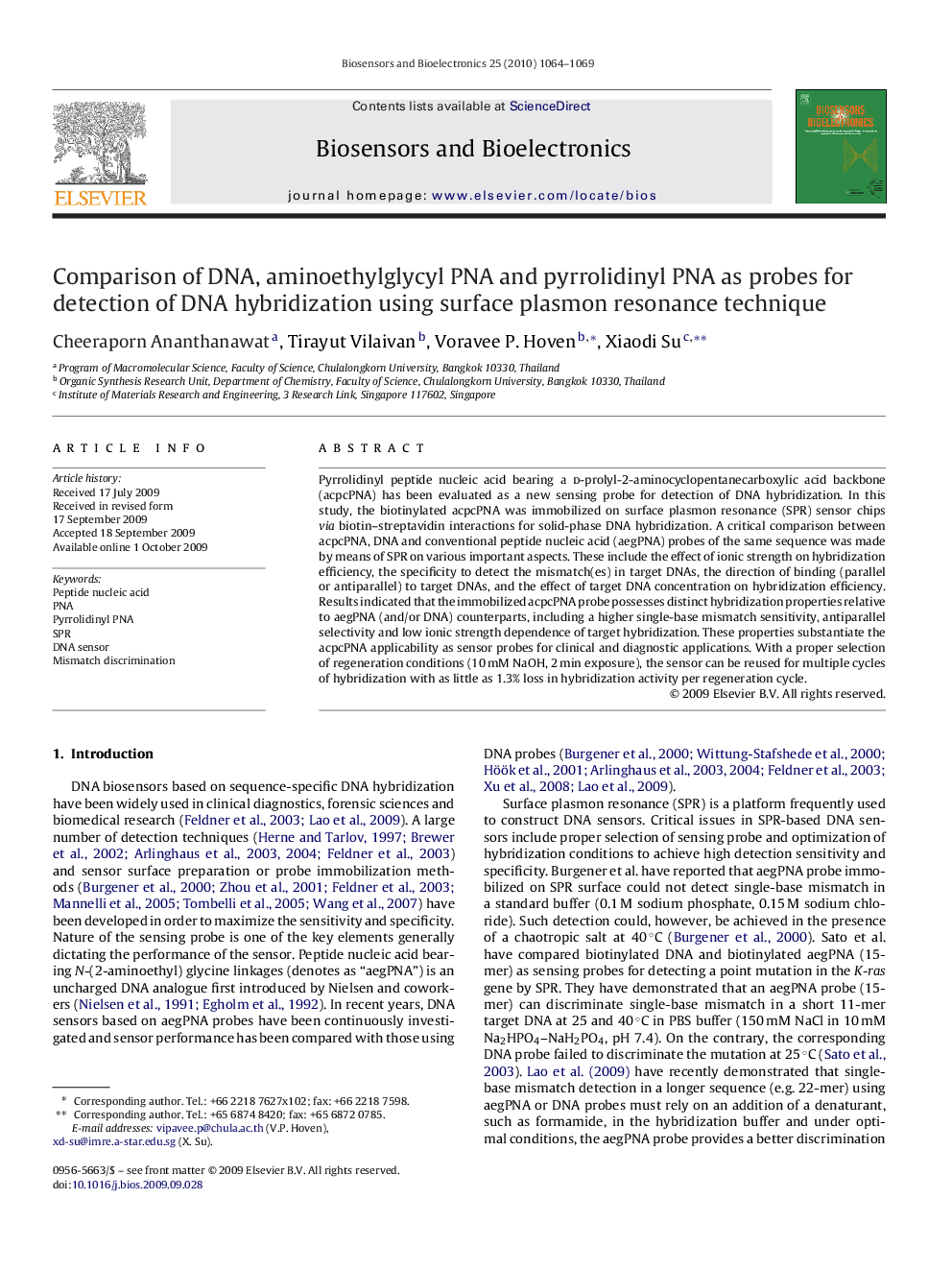| Article ID | Journal | Published Year | Pages | File Type |
|---|---|---|---|---|
| 868797 | Biosensors and Bioelectronics | 2010 | 6 Pages |
Pyrrolidinyl peptide nucleic acid bearing a d-prolyl-2-aminocyclopentanecarboxylic acid backbone (acpcPNA) has been evaluated as a new sensing probe for detection of DNA hybridization. In this study, the biotinylated acpcPNA was immobilized on surface plasmon resonance (SPR) sensor chips via biotin–streptavidin interactions for solid-phase DNA hybridization. A critical comparison between acpcPNA, DNA and conventional peptide nucleic acid (aegPNA) probes of the same sequence was made by means of SPR on various important aspects. These include the effect of ionic strength on hybridization efficiency, the specificity to detect the mismatch(es) in target DNAs, the direction of binding (parallel or antiparallel) to target DNAs, and the effect of target DNA concentration on hybridization efficiency. Results indicated that the immobilized acpcPNA probe possesses distinct hybridization properties relative to aegPNA (and/or DNA) counterparts, including a higher single-base mismatch sensitivity, antiparallel selectivity and low ionic strength dependence of target hybridization. These properties substantiate the acpcPNA applicability as sensor probes for clinical and diagnostic applications. With a proper selection of regeneration conditions (10 mM NaOH, 2 min exposure), the sensor can be reused for multiple cycles of hybridization with as little as 1.3% loss in hybridization activity per regeneration cycle.
